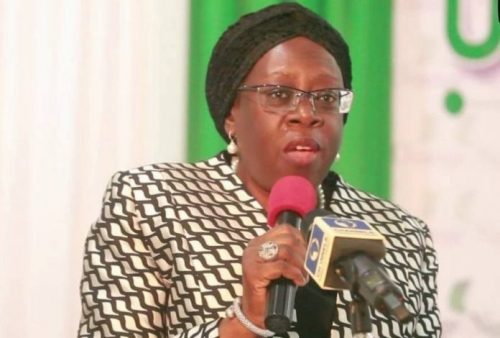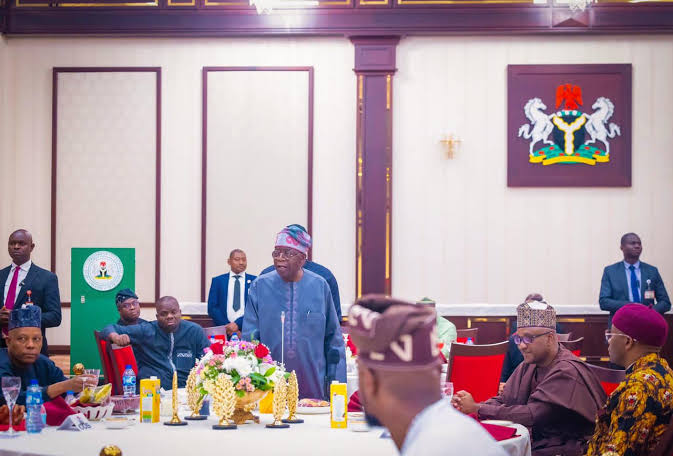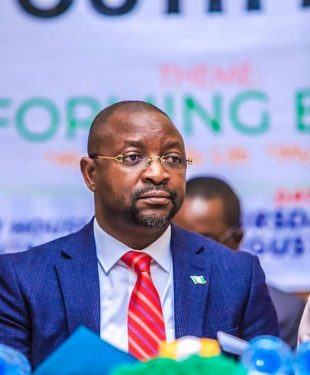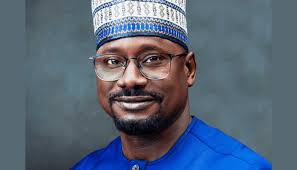EDITORIAL: Wrong way to review 1999 Constitution

With a sense of deja vu reminiscent of the Sisyphean myth, Nigerians are once again being treated to a national pastime: searching for what is already known and documented to create an impression of getting something done.
This time, the Senate of the ninth Assembly has commenced a constitution review process by setting up a 57-member Adhoc Committee on the Review of the 1999 Federal Constitution of Nigeria, headed by Deputy Senate President, Ovie Omo-Agege.
The committee has since sent out invitations to the public to submit memoranda to assist in “further alteration of the provisions of the Constitution (as amended).”
The report also had it that about N1 billion has been allocated to the committee for this task. In a swift reaction, the Northern Elders Forum (NEF) has opposed the proposed review of the Nigerian constitution by the Senate describing it as ‘a waste of time and resources’.
The forum faulted the huge monetary allocations for the constitution review process since 1999 saying ‘it makes little or no meaningful impact on the lives of Nigerians’.
The forum urged the National Assembly to convince President Muhammadu Buhari to end the insurgency in the Northeast and killings in other parts of the country rather than review the constitution.
They also advised Nigerians against supporting the proposed constitution review ‘at this difficult time when the economy is facing unprecedented challenges’.
The question could be asked whether the Northern Elders Forum are not interested in the constitution review because the status quo favours the northern region of the country. On the second thought, they may not be completely wrong.
The recurrent reviews of the 1999 Constitution by various National Assemblies and other ad hoc bodies since our return to popular democracy in 1999 have been expensive.
The different exercises did not produce any favourable and valuable results. Profound recommendations that were made in the past were never implemented.
They all therefore amounted to a predictable waste of time, resources, and energy for the country.
Another reason why we may not be able to achieve any meaningful achievement now is the time factor- we are very close to electioneering for 2023.
Since independence and indeed before, Nigeria has had several attempts at producing a workable constitution. Other nations have trodden a similar path.
For instance, following the Declaration of Independence and the Revolutionary War in 1776, the original 13 States of the United States of America operated an Article of Confederacy, a necessary but unwieldy document that institutionalized a central government.
The Article lasted for eight years before it was jettisoned for the current Constitution of the United States. Casting our sight at other nations, we can see that different constitutions lay emphasis on different national aspirations.
The patriotic agitations for constitution review in Nigeria have questioned the legitimacy of the 1999 Constitution mostly on the ground that it was imposed by the departing military without the benefit of a plebiscite, referendum, or national conference.
Its acceptance in 1999 was provisional, a kind of modus vivendi to ease out the military and pave the way for a national rebirthdemocracy and reconstruction.
Therefore, a fundamental flaw of the 1999 Constitution is the lack of consultation and participatory input of the people it directly affects.
Nigerians as well as the Senate are fully aware of the shortcomings, ambiguities, lack of clarity and even confusing provisions of the 1999 Constitution.
The Senate has attempted to address some of these issues.
These past efforts may have fizzled out, but records of the issues and determination to face them for the sake of the nation never deserted Nigerians.
The boldest effort was the National Confab of 2014 organized by the President Jonathan administration. Unfortunately, that government could not summon the will to implement the far-reaching recommendations of that conference.
We believe that there are enough recommendations from previous national constitutional conferences that deserve to be implemented in the national interest and unity.
Prominent among these were recommendations, as we earlier observed, from the 2014 National Confab and the Restructuring of Nigeria Report of a 23-man committee headed by Governor El-Rufai of Kaduna State set up by the ruling All Progressives Congress (APC) in 2017.
While performing this national task, the committee engaged 8,014 people across the country and came up with 24 issues which Nigerian indicated interest in.
Out of the 34 issues, they made 12 important recommendations based on the opinions of Nigeria.
What this means is that the legislative and executive branches of government have a huge bank of reviews, recommendations, and reports from past attempts at amending the constitution.
READ ALSO: Constitution Amendment: Power devolution, LG autonomy, electoral reform, state creation top agenda
It is our considered view that leaders of thought, elders, groups and professional organisations and representatives of government should freely discuss every element of our co-existence as a country under principles of voluntarism, genuine representation mutual respect and integrity.
Nobody should be muzzled by state security while freely expressing their views. The Senate ad hoc Committee should then harness all such views with a view to creating a country where no man is oppressed and devoid of acrimony and ethnic or religious divisions.
Finally, while restating the point that the terms of the union of our country need to be discussed, we call on the Senate Ad hoc Committee not to waste time and money touring the country.
It should rely on extant volumes of ideas and recommendations while listening to the voice of the people through their representatives.
The ruling party of which DSP Omo-Agege is a member, for example, has put together some low-hanging fruits that can be easily harvested.
Anything on the contrary will suggest that the ruling government simply wants to kill time.










